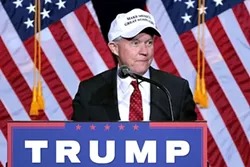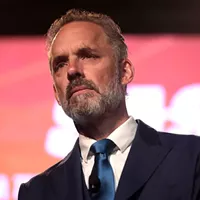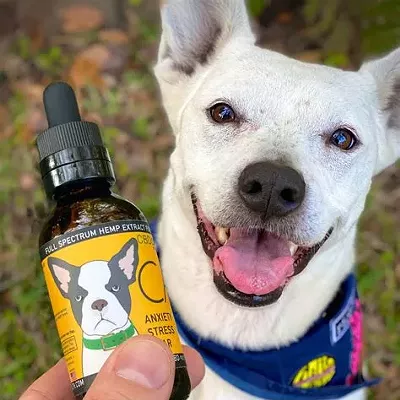News to Watch 2018: The Feds Land in Charlotte
Jeff Sessions to put violent crime task force to work in the Queen City
By Ryan Pitkin @pitkin_ryanOn December 15, Attorney General Jeff Sessions stood in the offices of Andrew Murray, former Mecklenburg County District Attorney and President Trump's new U.S. attorney for Western North Carolina, and announced that Charlotte would be one of the first American cities where he will implement one of his new federal violent crime task forces.
Sessions referenced the rising violent crime rate in Charlotte and in other cities around the country, then announced that his agents would be working alongside local law enforcement agencies to help combat it, while not getting specific about the tactics that would be used to do so.
"I'm not going to accept the rising crime rate, I know you're not," Sessions said to the room full of local, state and federal law enforcement representatives. "Plain and simple, you and I are not going to allow the progress made by our men and women in blue over the past two decades to simply slip through our fingers today. We will not cede a community, a block or a street corner to violent thugs or drug dealers."
The language was reminiscent of the dog-whistle racist language used in "tough on crime" speeches by politicians in the past, and the vagueness of the speech left much to be wondered about with regard to how these task forces will be run.
Sessions' speech worried some, like community organizer amalia deloney, who said she was saddened but not surprised that Charlotte was chosen as one of two cities — along with Pittsburgh — where the new task forces would begin their work.
"They had to pick a Southern city," deloney says. "And I think that, unfortunately, within a national conversation, Charlotte feels like a safe city to incubate and develop prototypes for many organizations — government or otherwise — because we're seen as a city that doesn't have organized social justice infrastructure, so there won't be pushback."
In his speech, Sessions referred to a collaboration between federal and local enforcement in May that ended in the arrests of 83 Charlotte-area members of United Blood Nation.
"The idea that prosecuting, jailing and putting in the slammer individuals of these types who pride themselves in violating the law as some sort of hopeless and worthless effort is totally false," he said. "You can make a difference when you target the most violent criminals and take them off our streets."
The speech, however, came across as hypocritical to deloney, who has watched for years as those who now support Trump's actions have railed against federal overreach in local issues.
"The same people who cried states rights are absent on this conversation," she said. "They're more than willing, apparently, to open the door to allow the federal military or police apparatus to come down and deputize local officers to act as federal agents, but in any other conversation they'll be the first to say, 'states' rights, states' rights, this isn't your place to operate.'"
In 2018, however, Jeff Sessions apparently believes Charlotte will be a place where he can operate.
Speaking of...
Latest in News Feature
More by Ryan Pitkin
-
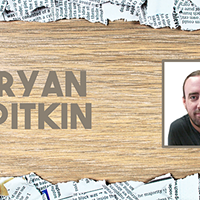
You're the Best... of Charlotte
Oct 27, 2018 -
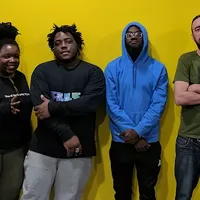
Listen Up: Cuzo Key and FLLS Go 'Universal' on 'Local Vibes'
Oct 25, 2018 -
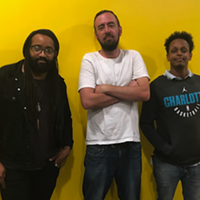
Listen Up: KANG is Back and Bla/Alt on 'Local Vibes'
Oct 18, 2018 - More »
Calendar
-
 Cirque du Soleil: OVO @ Bojangles' Coliseum
Cirque du Soleil: OVO @ Bojangles' Coliseum -

Coveted Luxury Watches
-

TheDiscountCodes
-

Queen City R&B Festival & Day Party @ Blush CLT
-

R&B Music Bingo + Comedy Show @ Blush CLT

